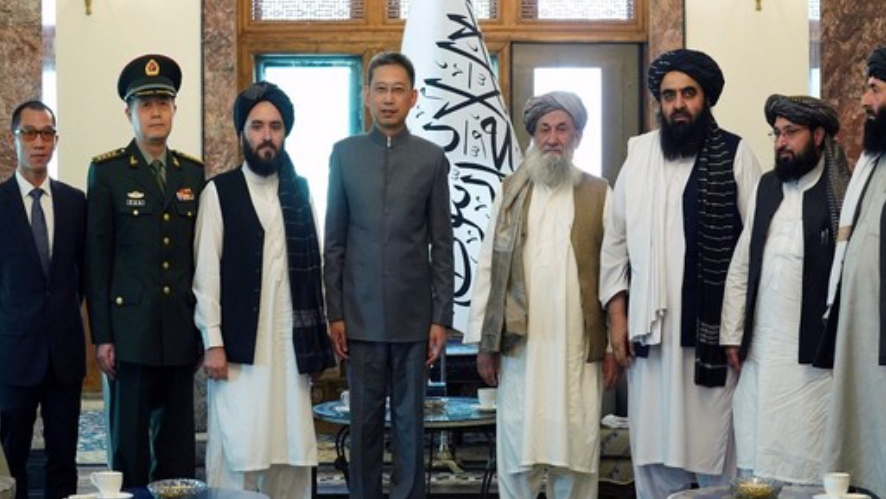The Recurrence of War: The Disarray of the Globalised Liberal Order
- SIS Blog

- Aug 5, 2024
- 4 min read

By Manoj Karki
In recent years, the rise of conflicts worldwide—such as the military coups in Myanmar and various African countries, the Russia-Ukraine war, and the Israel-Gaza conflict—signals a disruption in the global order. A decade ago, Yuval Noah Harari, an Israeli historian, remarked in his book Sapiens: A Brief History of Humankind, “Never before has peace been so prevalent that people could not even imagine war.” Fast-forward ten years, and we are witnessing a cascade of conflicts. What has changed since then?
The International Liberal Order

The international liberal order is a global system characterized by principles, norms, and institutions that promote a liberal vision of international relations. This system emerged primarily after World War II, led by the United States and its allies, intending to create a more stable, prosperous, and peaceful world. Key features of the international liberal order include:
Economic Openness: Promoting free trade and market economies.
Rule of Law: Ensuring that international laws and norms govern state behavior.
Human Rights and Democracy: Advocating for democratic governance and human rights.
Collective Security: Maintaining peace through international alliances and organizations.
Multilateralism: Encouraging cooperation among nations.
Development and Aid: Supporting economic and social development worldwide.
Overall, the international liberal order aims to create a world where countries interact peacefully, cooperate for mutual benefit, and uphold principles that support human dignity and development. As the strongest military and security power, the US played a key role in maintaining this order. Member states are committed to universal liberal values and cooperate in promoting human rights, free trade, and pacifying wars of conquest. Former US President Barack Obama once remarked, “Indeed, our international order has been so successful that we take it as a given, that great powers no longer fight world wars.”
However, the international liberal order has faced increasing challenges in recent years, leading to global turmoil. The system is not as effective as it once was.
Challenges to the Liberal Order
Two main theories explain the recent disruptions: Polarity and Populism.
Polarity
The theory of polarity examines the distribution of power among great powers. In a multipolar world, three or more great powers vie for influence, which can lead to instability, as seen in historical conflicts like the Thirty Years' War and the two World Wars. A bipolar world, with two dominant powers, is considered more stable theoretically but has experienced numerous proxy wars, such as in Korea, Vietnam, and Afghanistan during the Cold War. After the Cold War, the world experienced a unipolar moment led by the US. However, this unipolarity is under threat due to the resurgence of Russia and the rise of China (Lake, 2020). The liberal international order, which spread after World War II and expanded post-Cold War, now faces a crisis due to the erosion of US dominance and the rise of new powers (Ikenberry, 2018).
Populism
Populism has been another major challenge to the liberal order. Prof. John Mearsheimer, an American political scientist and international relations scholar, argues that the US-led international liberal order was doomed to fail due to three fatal flaws (Mearsheimer, 2019):
Intervening in Politics: Transforming countries into liberal democracies is extremely difficult. Nationalism often leads to significant resistance within targeted countries. States fearing regime change or US interference band together to thwart the US's liberal agenda. Examples include Syria and Iran aiding the Iraqi insurgency, and Russia and China supporting each other economically and militarily.
Sovereignty and National Identity: The liberal international order creates political problems regarding sovereignty and national identity, especially when regime change efforts fail, it leads to large-scale refugee flows, as seen in Afghanistan.
Economic Costs: Hyper-globalization has resulted in significant economic costs for many people within liberal democracies, including job losses, declining wages, and income inequality. These domestic political consequences undermine the liberal international order. Additionally, the rise of China and Russia's revival has challenged unipolarity, an essential condition for maintaining a liberal international order.
Alternatives and the Future
As the USA’s uncontested unipolar status wanes, the world seems to be moving towards a more unstable multipolar reality. Many thinkers believe we are already living in a less stable multipolar world. Factors like the influence of EU trade, China’s ambition to become a superpower, India's population potential, climate change, and migration are now significant poles of power. The rise of autocratic regimes challenges the established liberal order, and international alliances are less cohesive (Khan et al., 2021).
Some argue that Trump-led populism shifted the US's focus from global engagement to an inward-looking approach. The Russia-Ukraine war has distracted the US from preventing other conflicts. Increasing violence from states such as Azerbaijan and parts of Africa suggests a declining fear of US intervention, indicating a fragmentation of the global international order (Patman, 2019).
Conclusion
The indices of globalization, free trade, and democratization are stagnating. The international liberal order seems less liberal and less orderly. Global cooperation is crucial for addressing 21st-century challenges like the threat of a third World War, climate change, and ecological collapse. Urgent global cooperation is needed to ensure humanity's survival.
This is an Original Contribution to the SIS Blog.
Manoj Karki is pursuing his post-graduation in Politics (specialization in International Relations) at the School of International Studies (SIS), Jawaharlal Nehru University (JNU), New Delhi, India.




